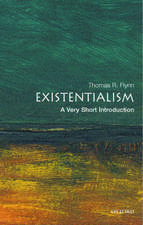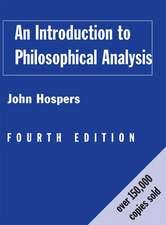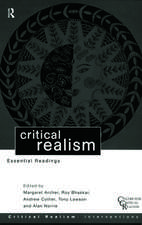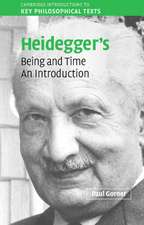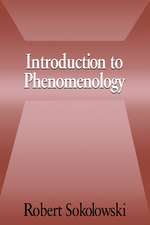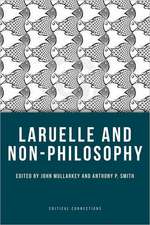Phenomenology and the Social World: The Philosophy of Merleau-Ponty and its Relation to the Social Sciences: Routledge Library Editions: Phenomenology
Autor Laurie Spurlingen Limba Engleză Hardback – 8 aug 2013
When this study originally published in 1977 there were only a few books in English on Merleau-Ponty’s philosophy. It introduced the reader and suggested how his thought might throw light on some of the assumptions and presuppositions of certain contemporary forms of Anglo-Saxon philosophy and social science. It also demonstrates how phenomenology seeks to unite philosophy and social science, rather than define them as mutually exclusive domains of knowledge.
| Toate formatele și edițiile | Preț | Express |
|---|---|---|
| Paperback (1) | 416.22 lei 6-8 săpt. | |
| Taylor & Francis – 21 dec 2015 | 416.22 lei 6-8 săpt. | |
| Hardback (1) | 764.20 lei 6-8 săpt. | |
| Taylor & Francis – 8 aug 2013 | 764.20 lei 6-8 săpt. |
Din seria Routledge Library Editions: Phenomenology
-
 Preț: 416.22 lei
Preț: 416.22 lei -
 Preț: 436.14 lei
Preț: 436.14 lei -
 Preț: 416.22 lei
Preț: 416.22 lei -
 Preț: 436.14 lei
Preț: 436.14 lei -
 Preț: 416.22 lei
Preț: 416.22 lei -
 Preț: 416.22 lei
Preț: 416.22 lei -
 Preț: 416.22 lei
Preț: 416.22 lei -
 Preț: 438.05 lei
Preț: 438.05 lei -
 Preț: 416.22 lei
Preț: 416.22 lei -
 Preț: 410.46 lei
Preț: 410.46 lei -
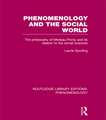 Preț: 416.22 lei
Preț: 416.22 lei -
 Preț: 278.13 lei
Preț: 278.13 lei -
 Preț: 436.14 lei
Preț: 436.14 lei -
 Preț: 437.89 lei
Preț: 437.89 lei - 36%
 Preț: 4744.59 lei
Preț: 4744.59 lei
Preț: 764.20 lei
Preț vechi: 1239.39 lei
-38% Nou
Puncte Express: 1146
Preț estimativ în valută:
146.23€ • 159.34$ • 123.22£
146.23€ • 159.34$ • 123.22£
Carte tipărită la comandă
Livrare economică 23 aprilie-07 mai
Preluare comenzi: 021 569.72.76
Specificații
ISBN-13: 9780415703178
ISBN-10: 0415703174
Pagini: 224
Dimensiuni: 156 x 234 mm
Greutate: 0.45 kg
Ediția:1
Editura: Taylor & Francis
Colecția Routledge
Seria Routledge Library Editions: Phenomenology
Locul publicării:Oxford, United Kingdom
ISBN-10: 0415703174
Pagini: 224
Dimensiuni: 156 x 234 mm
Greutate: 0.45 kg
Ediția:1
Editura: Taylor & Francis
Colecția Routledge
Seria Routledge Library Editions: Phenomenology
Locul publicării:Oxford, United Kingdom
Public țintă
General, Postgraduate, and UndergraduateCuprins
Preface Introduction 1. The Programme of Existential Phenomenology 2. Speech 3. Society 4. Marxism 5. Ethics 6. Philosophy 7. Conclusion
Descriere
When this study originally published in 1977 there were only a few books in English on Merleau-Ponty’s philosophy. It introduced the reader and suggested how his thought might throw light on some of the assumptions and presuppositions of certain contemporary forms of Anglo-Saxon philosophy and social science. It also demonstrates how phenomenology seeks to unite philosophy and social science, rather than define them as mutually exclusive domains of knowledge.

